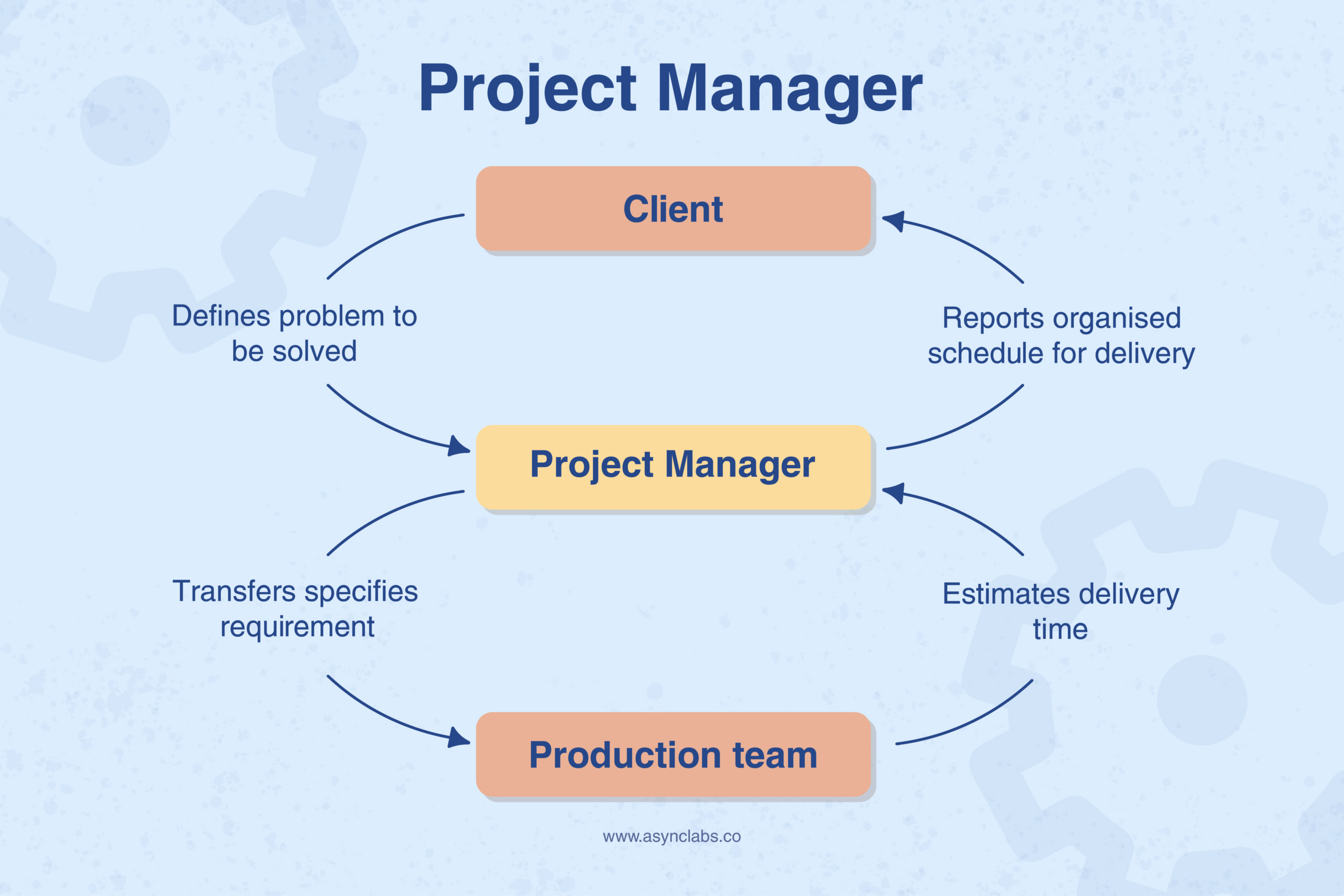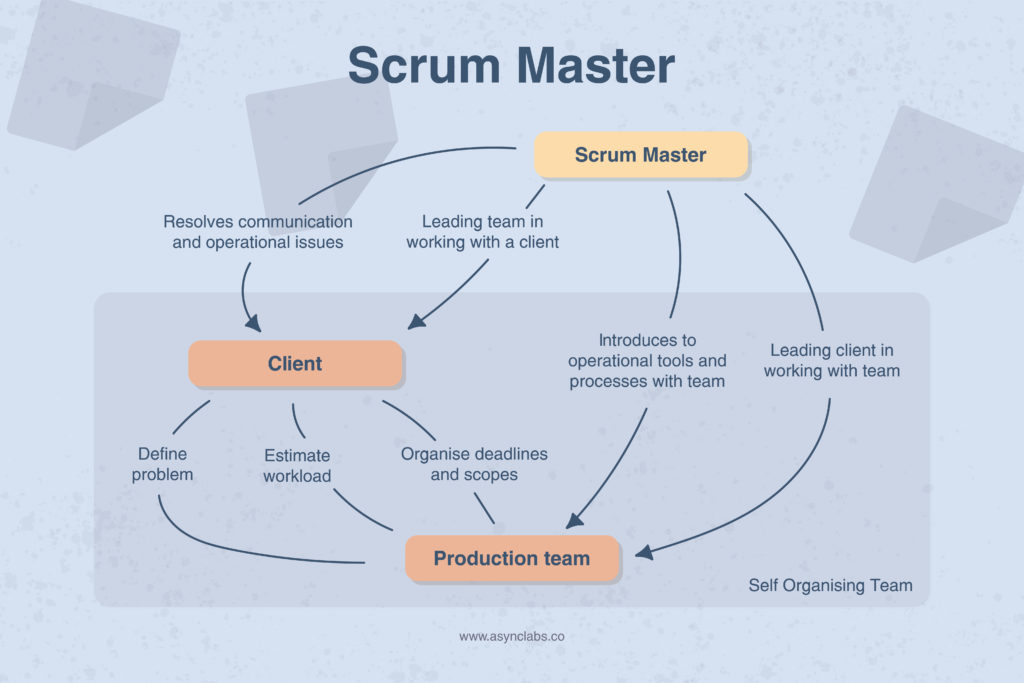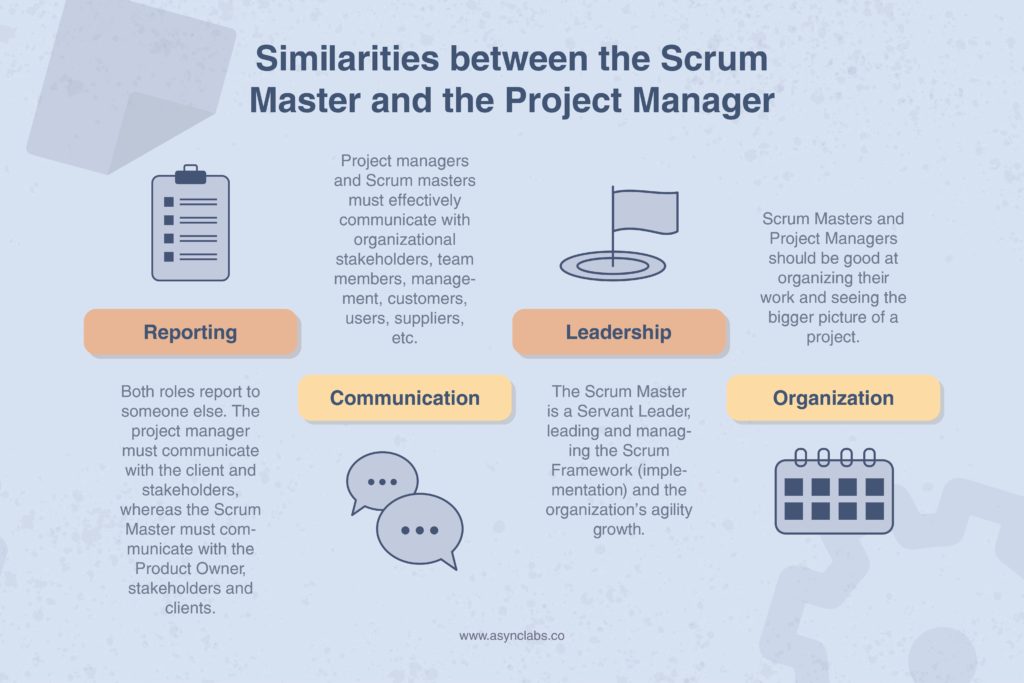How many times did you wonder what is the difference between Scrum Master vs Project manager after opening a job posting site? Their responsibilities, at first sight, look the same, and the same keywords can be found in the job description. But are they the same?
What is each of them responsible for? What is the difference between Scrum Master vs Project manager? Can one person cover all the positions stated? Does each of them require the same qualifications? These and more questions popped into my mind after I started working as a project manager and got familiar with the terminology.
For an entrant in the IT industry, both roles look similar, but they are very separate and distinct from each other.
Both roles are industry-specific in a way. While the project manager role is in charge of a project in any industry, the scrum master role operates mainly in IT or related industries.
Project managers play the leadership role by leading the planning for the execution of the project. Scrum masters support the team members by working closely with the team to ensure they follow the Agile principles properly.
Some sources say these roles are incomparable because they originate from two different process frameworks (traditional waterfall and agile).
I will try to show the similarities and differences between Scrum Master vs Project Manager and the responsibilities of these two roles within the IT and agile projects context.
Who is a Project Manager?

In waterfall, a traditional framework for project management, a Project Manager takes a great deal of responsibility – a leadership role in leading the team, developing and managing the project plan, scope, cost, and risk.
The project manager communicates directly with the customer, collects requirements, divides tasks among development teams according to available resources, and makes decisions affecting project execution.
Before the issue escalates to higher authorities, project managers are the first point of contact for any issues or discrepancies among the heads of various departments within an organization, such as project representatives.
A project manager is also a client representative and must determine and implement the client’s exact needs based on knowledge of the organization they represent. To handle all aspects of the project efficiently, project managers must have expertise in the domain in which they work.
The software project manager must also understand the life cycle of software development. This requires in-depth knowledge of requirements solicitation, application development, logical and physical database design, and networking.
The project manager ensures that everyone on the team understands and executes their tasks, feels empowered and supported, and understands and acts on the assumption that the roles will be performed.
The project manager’s responsibilities differ depending on the industry, company size, maturity, and company culture.
What do Scrum Masters do all day?

The Scrum Master is responsible for promoting and supporting Scrum as defined in the Scrum Guide. The definition consists of Scrum’s roles, events, artifacts, and the rules that bind them. Scrum Masters are helping everyone understand Scrum theory, practices, rules, and values to become self-organized as a team.
In the sense of know-how, a self-organizing team should work with a client, engage the client in the product development process, understand and follow the Scrum processes, and educate the client on how to work with the implementation team.
A Scrum Master is:
- A servant-leader for the Scrum Team. The Scrum Master helps those outside the Scrum Team understand which of their interactions with the Scrum Team are helpful and which aren’t. The Scrum Master allows everyone to change these interactions to maximize the value created by the Scrum Team. Scrum Master assists team members by working closely with them and ensuring that Agile principles are followed correctly.
- A person who teaches the team about Agile and the Scrum framework. Scrum Master manages the Scrum process and plans sprints, ensures team dynamics and function, and ensures the whole project runs smoothly. Scrum master could facilitate some Scrum events such as Daily Stand-ups, Sprint Planning, Sprint Review, or Sprint Retrospective.
- Scrum Master handles coaching conversations with the Product Owner, managers, customers, Development Teams, and other people or stakeholders (employees, managers, customers, and others) to help them better understand Scrum and plan and manage Agile implementation.
- Responsible for the Scrum process, ensuring its proper implementation and maximizing its benefits.
So, where is the Project Manager in this Agile story?
Agile recognizes this position and distributes the traditional project manager’s responsibilities. Agile is about this new paradigm because many of these duties, such as task assignments and day-to-day project decisions, revert to the team.
In agile, a project manager helps manage the project timeline, resources, and scope to meet the business requirements. In many organizations, a Project Manager oversees multiple Scrum teams. And each Scrum team should have its own Scrum master.
People may view the Scrum Master as a 21st-century version of the project manager when it comes to agile. However, unlike a traditional project manager, the Scrum Master is not held accountable for the project’s success or failure.
The Scrum Master is an expert who knows how to get a team to perform at its peak. A Scrum Master, on the other hand, does not have many of the traditional responsibilities of a project manager, such as scope, personnel, cost, and risk management.
What are the roles in an Agile project?
Most agile processes (a scrum, in particular) do not include a project manager. Agile (that we previously wrote about) project management divides responsibility amongst the team, scrum master, and product owner.
The Scrum Master serves as the team’s coach, helping team members work together in the most effective manner possible.
A Product Owner collaborates with the team and the client to establish direction and ensure that Scrum practices are followed, and that team members can develop without impediments.
When using Scrum, there is no such thing as a project manager.
A common misconception is that the Scrum Master is simply the “agile project manager” or another title for a project manager. There are similarities between a Scrum Master and a Project Manager. For example, both do impediment removal. Being a servant leader significantly differentiates this role from a command-and-control-focused project manager.
In summary, the core responsibilities of the project manager remain essential and need to be addressed. However, when applying Scrum, these responsibilities are not vested in a single individual called the project manager. Instead, the traditional project manager responsibilities are distributed among the various Scrum team roles and possibly other managers.
What are the main similarities between the Scrum Master vs Project Manager?

Reporting
Some common thing for both roles is they sound like “supreme authority,” but the truth is – they are not.
Both roles report to someone else. The project manager must communicate with the client and stakeholders, whereas the Scrum Master must communicate with the Product Owner, stakeholders, and clients.
Communication
Both roles can fail if they ignore the basic principles that should be adhered to or disregard the opinions of the team members.
Project managers and Scrum masters must effectively communicate with all organizational stakeholders, team members, management, customers, users, suppliers, etc.
Leadership
Leadership is also an essential skill for both roles, but the type of leadership is a bit different.
The Scrum Master is a Servant Leader, leading and managing the Scrum Framework (implementation) and the organization’s agility growth.
The Project Manager also needs to have excellent leadership skills. This includes motivating teams, leading people in the project process, convincing people about the right project approach, etc.)
Organization
Scrum Masters and Project Managers should be good at organizing their work and seeing the bigger picture of a project.
Finally, both the Project Manager and the Scrum Master are human, and humans make mistakes. They do, however, debug and learn from their mistakes, they communicate, mitigate risks, receive feedback, and foster strong bonds within a team.
Is Project Manager better than Scrum Master?
A Project Manager and a Scrum Master are different roles with different responsibilities. A Project Manager is responsible for the overall planning, execution, risks, and closing of a project.
At the same time, a Scrum Master is a facilitator for the Scrum Team, ensuring that the team adheres to Scrum values, practices, and rules. Both roles are essential for the success of a project, but they have different focuses and require other skills.
A Project Manager may focus more on budget and schedule, while a Scrum Master focuses more on the team and their process. It depends on the specific project and organization which role is better for the project.
Main differences between the Scrum Master vs Project Manager
Project managers and Scrum Masters have very different roles in a project. Communicating and designing the best way to work together will ensure the success of any project these two leaders touch on as opposite ends of the same team. Below are some areas where we can see the clear difference between these two roles.
Framework
Scrum Masters adhere to the Scrum rules and always support the Scrum framework. Meanwhile, Project Managers can tailor their project management approach. Depending on the project’s needs, they can use waterfall, Agile, or adaptive frameworks.
Unlike Project Managers who get involved in every aspect of the project, Scrum Masters focus more on resource, quality, and scope management.
Team management
Scrum Masters are responsible for team dynamics, while Project Managers handle team and stakeholder expectations. They are responsible for the performance of interdisciplinary teams, such as the development, finance, and analytics teams.
Team synchronization
Scrum Masters organize daily Scrum meetings. On the other hand, project managers plan and facilitate communication and meeting calendars ahead of time.
Task management
Task delegation and designing work schedules are some of the Project Managers’ responsibilities. Scrum Masters coach the team on Scrum principles and support and motivate the team during project execution.
Field of work
Scrum Masters are typically found in IT or related industries, while Project Managers can work in any industry.
Leadership
Project Manager is more of a leadership role, while Scrum Master focuses on facilitating and coaching. Depending on the needs of your project, you can choose to hire both or select only one.
Documentation management
Creation, management, and updates of all forms of documentation are Project Managers’ part of the work (Project Brief, PID, Budget, Risk log, Project Plan, Gantt chart, etc.). The Scrum Master creates, manages, and updates no documentation at all.
Summary
The Project Manager role is an extended position that brings many different responsibilities that often don’t have a clear relationship (for example, writing a business case VS coaching and motivating people).
The Scrum Master role is, however, more specific. The Scrum Master increases the organization’s agility by being a servant leader and helping people understand and enact the Scrum Framework.
Can a Scrum Master become a Project Manager?
Yes and no. Scrum Masters practice project management and need specific project management skills such as communication and organizational skills.
However, the Scrum Master on a Scrum team does not necessarily need to be a formal project manager—though they often are. Scrum Masters can be product managers or professionals with leadership experience in software development, design, or other fields relevant to the project.
Although Scrum Masters can be project managers and vice versa, they differ. A Scrum Master role is specific to a Scrum team. The project manager is a professional in charge of any project.
Scrum Master’s primary focus is on leading a team to adhere to Scrum principles. A project manager is concerned with the logistical aspects of the project. These aspects include budgets, schedules, and communication plans, in addition to keeping their team on track and motivated.
Scrum masters ensure that their team follows Scrum principles. Project managers oversee the entire project, including logistics such as budget and risk.
What would you point out when speaking about differences and similarities between Scrum Master and Project Manager? Do you think these two roles are even suitable for comparison?
In Async Labs, our Project Management team has a lot of experience leading projects from idea to final product, whether we do it in traditional or agile methodology. If you need someone to lead your software or marketing project, don’t wait any longer – contact us today!
